Every year at this time, people reflect on their dads, their granddads, their uncles—all the men in their lives. We at the JFP want to shine a spotlight on a few men who make Jackson a little cleaner, brighter, compassionate, smarter or a little more delicious. Some of them are dads, some aren’t. But they all inspire, teach and share their talents with our community, raising Jackson up to achieve its potential.
Keith Tonkel
Nearly everybody in Jackson knows the Rev. Keith Tonkel. They know Wells Church, where he preaches (2019 Bailey Ave., 601-353-0658), the community outreach he performs, and WellsFest, a festival that shows no sign of slowing. They probably know, too, that he just recently began chemotherapy for cancer in his throat.
If you haven't gotten to know Keith Tonkel, you ought to.
Tonkel has practiced a "ministry of presence" in Jackson since 1969, and that longevity is no accident. "We felt very strongly that we should come into a community like this, and (moreover), that we should stay," Tonkel says. "I felt that we should come and be there, not for some people, but for all the folks."
One of the church's many programs provides food, medicine and reading lessons to under-served residents. It's accompanied by a dose of Methodist devotion, which Tonkel adds "is optional."
"We told them they didn't have to have the devotion to get their stuff," he says. "One of the ladies said, 'Yeah, well, the bread you give us passes pretty quickly, but the other lasts a little longer.'"
Tonkel spoke volumes with his 1963 signature on the "Born of Conviction" declaration against racism, which he signed along with others in the faith community.
"What we basically said was we believed in the fatherhood of God, the brotherhood of man, the leadership of Jesus, and the public school system, and we weren't communists," Tonkel says with a hearty laugh. "But at that particular time, there was not much voice to that."
Malcolm White, a local luminary of Hal & Mal's fame, has, like so many others, his own origin story of his relationship with Tonkel. "I first met him when he married me and my wife in the early 1980s," White says. Tonkel wouldn't accept any payment for the ceremony, but White's father instructed him that "you have to pay the man."
"Keith, the only thing I know how to do is organize an event," White told him. "I heard you have a building fund. Maybe I can help with that somehow."
Like that, WellsFest was born.
The festival is known as "Jackson's First Festival." It provides a way for Jacksonians to enjoy music and have fun in a drug- and alcohol-free way. The event also benefits local charities.
Jackson supports and cares for Tonkel just as he loves them back, and there is good reason to believe he'll return in top form after his treatment for cancer. And you know, there may be something to this prayer thing. "It's two-thirds smaller that it was," Tonkel says of his tumor. The doctors told him his immune system had probably kicked in. "Well, what do you think kicked in the immune system?" he asked them rhetorically.
Tonkel flashes a smile.
"I know exactly where you're coming from, Reverend," his doctor replied.
—Julian Rankin
Cedric Sturdevant
Forty-eight-year-old Cedric Sturdevant could have died, but he didn't. He could have become bitter and angry at the world, but he didn't. Instead, he chose to dedicate his life to helping minorities with health issues and, in particular, those of the LGBT community through My Brother's Keeper, a non-profit organization in Jackson.
Sturdevant grew up in a home without a father. In his early 20s, he married and had two daughters, who later gave him two granddaughters. At age 32, he came out to his mother, whose reply was simply, "I love you anyway, but I knew that already." While living with his partner in 2005, the two were diagnosed with HIV, but they ignored their sickness and neglected to seek treatment. As their sickness increased without being treated, Sturdevant had to be hospitalized in Memphis for 13 days, during which he came very close to death. His partner of six and a half years did not survive.
As Sturdevant became healthier, he believed God gave him a second chance. "I wanted to help young, minority gay men not go through what I did: going through their diagnosis alone, or not taking care of themselves due to no or misinformation," he says.
Sturdevant began to mentor these young men, giving them not only a father figure and a friend, but also a place to live if they needed it.
In 2011, Sturdevant participated in a documentary entitled "deepsouth," which is about people in the rural South who suffer from HIV/AIDS and how members of the community live with and combat the disease. Showcased was Josh, a college student from the Delta, who became a part of Cedric's "gay family."
"It basically showed his journey from the Delta, to Jackson, to my house, via the 'underground' connections in the LGBT community," Sturdevant says.
Today, he continues his work at My Brother's Keeper. The organization opened a health clinic called Open Arms specializing in LGBT health issues on Feb. 7.
"Jesus is love," he says. "It didn't matter who you were, or what was wrong. He would help anyone. I feel like, as a Christian, I'm striving to be Christ-like, so I have to do the same."
His hobbies include travel (Las Vegas is his favorite city, and he's looking forward to an upcoming trip to Manhattan), reading and science-fiction movies. His life is very family oriented.
"I'm a Papaw," he proudly says.
One thing Sturdevant wants to convey to the black community is that it needs to embrace its differences.
"All of the things our people went through during slavery and the Jim Crow era, all of the prejudices put in place, other races no longer have to do it. We do it to ourselves," Sturdevant says.
—Shameka Hayes-Hamilton
James Russell Morrison
"Find a mission."
That is how James Russell Morrison, 28, ended his Millsaps College graduation speech May 11 where he received recognition as an Oustanding MBA graduate. Morrison, who has a bachelor's degree in history from the University of Virginia, started the S.O. TEREC T-shirt company in 2012 as a vehicle to help those in need in his home state.
The name, S.O. TEREC, is a play on the word esoteric and is also a Latin acronym that represents the vision of the company—"Servo omnis tribuo elemosina relevo exhibeo contineo," which translates to, "To serve all, to give alms, to alleviate (hunger) to cause to touch (lives.)"
The aim of S.O. TEREC is to not only make people aware of the problem of hunger in Mississippi, but to partner with the Mississippi Food Network to help address the problem in a tangible way.
For every shirt sold, S.O. TEREC makes a donation to MFN. For every dollar donated, the food network is able to provide seven meals to hungry Mississippians.
"(The idea came from) wanting to use my business knowledge to find a social venture that would directly help Mississippians," Morrison says. "With food insecurity being a huge issue in our state, it felt like a good place to start."
The Life Sciences Research Organization (lsro.org) defines food insecurity as a situation in which the availability of nutritionally adequate and safe foods or the ability to acquire acceptable foods in socially acceptable ways is limited or uncertain.
Inside Mississippi reports that in the years 2006-2008, 17.4 percent of the households in Mississippi experienced food insecurity, and 7.4 percent experienced hunger.
These were the worst percentages for any state and also the worst percentages recorded since the census bureau started using the measurement in 1998.
"I volunteered at the Mississippi Food Network and really liked their programs. They are super-efficient and just do a really good job," Morrison says.
The vision of MFN is to eliminate poverty-related hunger. They accomplish this by distributing donated and purchased food and grocery products through a network of 415 member agencies that include churches, nonprofit organizations, food pantries, soup kitchens, shelters, after-school programs, day care centers and senior programs across our state. They service more than 125,000 people each month.
Morrison says doing this work is important to him due to "my bleeding heart for Mississippi."
"I've traveled a lot, been coast to coast, worked a lot of different places, and I always knew that Mississippi was my heart," Morrison says. "I just felt there was a need all over, but if there are hungry people in your backyard that's a good place to start."
Morrison also has worked as a start-up business consultant and is working for a local wealth-management firm, as well as developing future projects.
"It's a secret," Morrison says. "I can't tell you, yet. It's a surprise."
Purchase S.O. TEREC T-shirts Fair Trade Green, located in the Rainbow Plaza (2807 Old Canton Road, 601-987-0002) in Fondren.
—ShaWanda Jacome
Tyson Jackson
Anthony Tyson Jackson, 32, is a community activist who wants to help the workers of the Nissan Plant in Canton unionize. He is the senior student and community organizer for the United Auto Workers Global Organizing Institute, the executive chair for the Mississippi Student Justice Alliance and state treasurer/second district delegate of the Young Democrats of Mississippi.
Jackson became interested in activism due to his mother making him aware of the struggles of African Americans. She created a reading culture within the household. From there, Jackson began to study on his own and learn more about his heritage. Because of this, he carries a strong sense of justice and integrity in his heart and soul.
"I got into activism ... by organizing things in high school, pushing envelopes, and fighting for our rights as students, and I did the same thing when I went to college," Jackson says. "I never like to see anyone get picked on, and I don't like when things are unfair. I'll fight for anybody that is being unjustly treated. So (my upbringing) and that is combined together."
Jackson says he began focusing more on activism at Tougaloo College while studying Mississippi's history. "(I) had an opportunity to be involved with a lot of different people," he says. "That activism spirit is still in me."
He majored in political science at Tougaloo College. Later, he enlisted in the Mississippi Air National Guard and served for six years.
While in the military, Jackson lived in St. Louis where, looking at his surroundings, he had an epiphany. He saw rundown neighborhoods, abandoned schools and a high crime rate across the city, and realized that something needed to change.
When he returned to Jackson, he saw the same things that plagued St. Louis and decided he wanted to be involved in his community.
Monica Atkins, a fellow member of the Student Justice Association, greatly appreciates Tyson Jackson.
"A piece of me had lost hope about people caring about the world around them and activism," Atkins says.
"It seemed as if hate and selfishness had become louder than the sound of love and peace.
Tyson brought that glimpse of hope back for me. To find someone so charismatic, enlightened and, more importantly, kind at heart has given much more hope for activism, especially inspired through student-led movements, in the future."
Jackson says that he hopes people pay attention to their surroundings and keep their eyes open.
"Don't be bought by large corporations. And think about the people that are out there and how they're getting affected," Jackson says.
"That makes a difference when people are talking about unions or anti-unions."
—Mark Braboy
James Davis
Three years ago, 28-year-old James Davis was pinned beneath a forklift he was driving at work. His legs were torn from his spinal cord, and several organs were crushed. Doctors didn't expect him to live and, if by the slim chance he did, he'd never walk again. Davis defied both prognoses, but spent the next two and a half months in the hospital learning to walk again. When he was released, he was a shell of his former athletic self.
Davis' wife, Tanya, watched as her husband sank deeper into sadness and decided to take action.
"She came home one day and said, 'The boys are on this (football) team called the South Jackson Eagles. They have practice Monday, and the coach said he will see you there,'" Davis says. He went to the field the next day and met the coach. "The coach told me, 'Yeah, your wife said you wanted to coach,'" he says.
Davis accepted the opportunity, and his impact on young men in the south Jackson community has been immense.
The coach teaches his players to give back. The team completed a neighborhood cleanup and a cleanup of the Fortification Street Bridge. These projects, he says, were born out of his fear for the safety of the children who use both areas.
As much as Davis has done for his players, they've also given back to him. Davis promised his struggling team early in the season that if they made it to the championship, he would go back to school to finish his degree. After a 4-4 season, the team made it to the championship. Although they didn't win, the boys reminded him of his promise.
"I enrolled in Hinds (Community College) in Jackson," Davis says with a smile. Yet even while keeping his promise to his players, he found a way to drive them to be better. "Some of them made a deal with me," he says. "They took public speaking."
Davis is focused on his general studies at the moment.
"I basically want to show people that these young men are from the same neighborhood you are," he says about his players. "They are winning awards in school. They are not in trouble. We want to make sure our attitude is very contagious and it's worth catching."
—Torsheta Bowens
Chris Harben
Classically trained musician and producer Chris Harben, 34, is a family man, though one of a different strain. Born and raised in south Jackson, his love of music began within his immediate household, and has expanded to encompass an extended musical family throughout the Jackson metro area.
Harben began playing at 4 years old, calling the keyboard his "gateway instrument." His brother took lessons from Sherman Lee Dillon, and Harben wanted to take lessons, too—so badly he even broke the strings on his brother's guitar. When a cousin got a guitar for Christmas, he played around on it at family gatherings, but wanted to learn how to play "off-the-cuff." He later took up bass guitar once it became apparent in lessons that he was actually playing bass lines instead.
At 12, Harben played in his first band with John Schenk, currently of That Scoundrel, in a group they called Boomerang Tuna. He has also played with Jason Turner and the improv-funk-metal band Hytchcock.
For the past six years, he has been with metal band Hell's Half Acre, and most recently joined Filter the Noise.
Harben has a high respect for other players. He says a band is a family within itself and with other bands. He loves what other musicians introduce to him—music he wouldn't normally listen to and styles he wouldn't generally play.
"We push each other," he says, "and it challenges us each to be a better person and better musician."
Sometimes new music isn't necessarily a piece Harben likes or knows, but he finds a way to be unique with it, working in his individuality and personal points. With a style that can fall between bass and guitar, he melds music into his own.
"What I like about Chris is that he's all things wrapped up into one: classical, but he plays bass with a heavy riff. He says he's not a lead guitarist, but he still plays it and can play drums, too. The first time I heard him was on a recording, and he was playing all the parts," says Filter The Noise bandmate Nicole Alexander.
Harben is thankful for the people he plays with for inspiring him and being his musical family. "Music is my life, and they are my music," he says.
—Dawn Macke
TJ Harvey
TJ Harvey is a doer. He doesn't just talk about how to make his community better—he gets in there and makes it happen.
"No matter whether you're involved with a community organization or your church or politics, to be involved is so important to the sustainability of that community," he says.
Harvey, 30, is a native of Columbia, Miss. He attended Mississippi State and graduated with a bachelor's degree in business with a minor in German in 2006. Never one to be on the sidelines, he made the most of his years in Starkville.
"I thought I had to be overly involved, so I did everything possible," he says. "I interned for Governor Barbour's first run for governor and was really involved. They were impressed with the work I did on campus and in the surrounding areas, so when graduation time came along, the Republican party asked me to come work for them."
Once he moved to Jackson, he worked for Barbour's re-election campaign. He eventually became the political director before he felt the tug of the nonprofit world and decided to redirect his efforts.
Harvey is involved in Young Leaders in Philanthropy through the United Way of the Capital Area. Its current focus is on literacy, working with country singer Dolly Parton's Imagination Library, which promotes early childhood literacy. He is also on the board of Zip39, a young professionals group through the Madison County Chamber of Commerce. Zip39 encourages professionals ages 25-39 to get involved in their community.
This year Zip39 has been working closely with Madison Countians Allied Against Poverty (MADCAAP), a nonprofit that assists families living in poverty in Madison County.
Harvey is also involved with the Susan G. Komen Central Mississippi Steel Magnolia's Race for a Cure, acts as a Team in Training coach for The Leukemia and Lymphoma Society, and is the congressional district leader for ONE.org, an organization that sheds light on extreme poverty.
"We reach out to our national legislators, Congress and senators, to be mindful of legislation that would promote strong economic development in local communities in Africa," he says.
Harvey seems determined to make every second of every day count, and he does it all because he loves it.
"It's fun," he says. "People should be aware of what is going on in their community ... Conversation is good, but being a doer is even better."
—ShaWanda Jacome
George Chuck Patterson
When talking to George Chuck Patterson about serving young people in Jackson, you can see the passion on his face and hear it in his voice.
Originally from Mobile, Ala., Patterson graduated from Tougaloo College in 2003 and attended graduate school at the University of St. Thomas in Houston, Texas.
"I had no intentions of coming back to Jackson, but God said otherwise, and I ended up back February 2005 as the coordinator for student activity and leadership development at Tougaloo College," Patterson says.
Patterson says that when it comes to his work, "it's not a job to me; mainly because I do it all day and night."
The 31-year-old says that his job as director of campus life and community outreach is to bring those two areas together. "If I can connect (the) campus to community and community to corporation, everybody has everything that they need," Patterson says.
When not fueling the cycle of young adults transitioning into college and out into the workforce, Patterson keeps his hands full with various youth programs, including the annual Mississippi Youth Hip Hop Summit.
"Right now, I'm getting prepared for the Young Women Leadership Institute, held at Tougaloo," Patterson says. The all-female event brings 100 African American women from Mississippi, Alabama and Georgia to go through various educational trainings and workshops.
"I usually do a workshop about what young women should expect out of the young men they encounter and then, I also usually have one of my younger DJs come in and do a dance in the talent show," Patterson says.
Working with the Children's Defense Fund, Patterson also participated as a trainer for the annual Young Advocates Leadership Training program. "Last summer, in Cincinnati, Ohio, we facilitated the national training for, like, 1,500 young people from all across the nation," he says.
The entrepreneurial Patterson also works as a disc jockey and graphic designer for a variety of professionals and events, whether private, public or for charity. He is at the center of Mississippi Greek Weekend, which is in its sixth year of operations and benefits the Leukemia and Lymphoma Society and the Cure Sickle Cell Foundation. The four-day-long event's mission is to "unify members of Greek Organizations throughout the state of Mississippi, regardless of school affiliation, race, color or creed," according to its Facebook page.
—Darnell Jackson
P.J. Lee
"Out of deep sadness, there can come something good," says P.J. Lee, reflecting on his unplanned change in vocation. Lee, 36, is the son-in-law of the late Hal White of Hal & Mal's in downtown Jackson. When White suddenly passed away in March, Lee, a lawyer by trade, planned to help out the staff and family at the restaurant for a couple of weeks after he received a call from the kitchen that nobody knew White's shrimp creole recipe. Two years ago, shrimp creole was the first recipe White allowed Lee to cook in the restaurant.
Once in the kitchen, Lee says, "I started to hear conversations I've had (through the years) with Hal; it's like he's telling me what to do. We did two things together—play golf and cook—and I didn't realize until now that I was learning all these things he did at the restaurant."
In addition to finding it rewarding to see the staff and Hal & Mal's supporters rally together the past few months, Lee realized a passion for "part of my everyday that was missing."
Having people he trusts be honest with him as he gives himself a crash course in Kitchen 101 made it possible for Lee to not only step into the role, but also to enjoy it.
Lee credits a supportive culinary community built on the shoulders of Hal, as well as his late friend Craig Noone, who founded Parlor Market.
"Thanks to those two guys we lost too soon, there's a whole community here that understands, yes, we're in competition for business, but we're also all in this together as a city," Lee says.
In his spare time, Lee spends time with wife, Brandi, and their 2-and-a-half-year-old daughter, Rivers. He says becoming a dad "made me much less uptight about things and changed my perspective of what makes a good day versus a bad day."
As he joins the culinary and downtown community he loves, Lee plans to turn out more inspired soups from the kitchen during his "indefinite sabbatical" from the practice of law as he and the Hal & Mal's crew continue to "Keep Calm and Hal On." His hard work and determination to keep Hal's name alive allowed him to win best chef at Jackson Free Press' Chef Week in May.
—Julie Skipper
Albert Sykes
Hailing from the same neighborhood where Medgar Evers lived and died, 29-year-old Albert Sykes recalls his early exposure to storytelling as a way of learning about the past and politics. Even in his youth, Sykes regularly watched news on TV with his grandmother. In kindergarten, he was the only one to raise his hand when the teacher asked about the new U.S. president.
Sykes, a father of three boys, did not have a steadily present father or other positive male role models—not until early adolescence, that is.
Then came famed civil rights veteran Bob Moses and his sons, Omo and Taba, and the Algebra Project/Math Lab. With their interactive teaching techniques, including field trips, the Moses made learning fun and, through this, showed the students that they cared.
The three men inspired Sykes. He and fellow Algebra Project participants changed from "knuckleheads" at Brinkley Middle School, Sykes says, to "folks that felt responsible for each other."
Eventually, they collaborated on efforts to create the Young People's Project for Math Literacy and Social Change, where he serves as director of policy and advocacy.
While balancing curriculum development with fundraising, Sykes continuously chips away at Mississippi's sticky progression from slavery and sharecropping to freedom and equal education for everyone. His focal points are education reform, zero-tolerance policies and the school-to-prison pipeline. In conjunction with many organizations, including the NAACP, Parents for Public Schools, and the Institute for Democratic Education in America, Sykes advocates for policies such as Quality Education is a Constitutional Right.
Sykes is helping design a young people's advocacy activity book, which highlights stories of activists ranging from Harriet Tubman to more current campaigns facilitated by social media, concerning issues such as bullying.
"Kids can see (that) efforts to create change never stopped happening," Sykes says. "It's less about bringing out mass amounts of folks; it's more about bringing in a concentrated amount of folks that's really dedicated to doing the work."
At the same time, Sykes says that success cannot be contained, nor is it always traditional. One way or the other, and despite his own hardships, Sykes strives to pass on the torch of intellectual development and access to it.
To learn more about the Young People's Project, go to typp.org or call 601-987-0015.
—Charlotte Blom

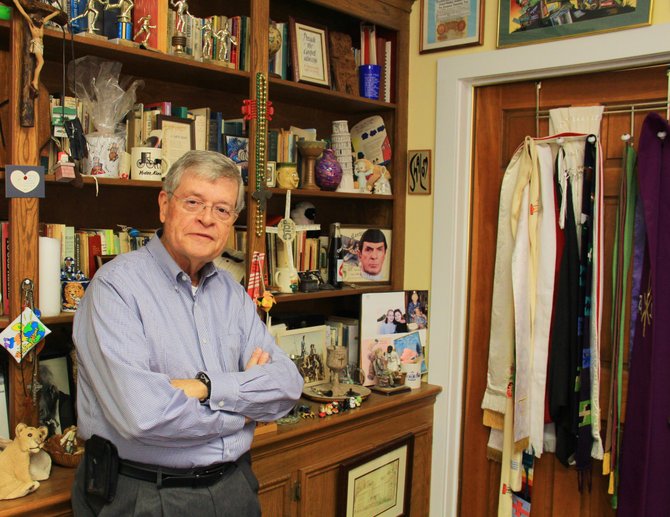

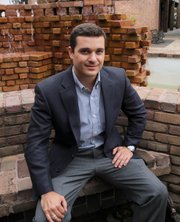
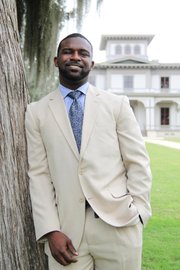
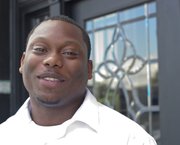
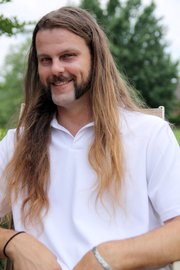

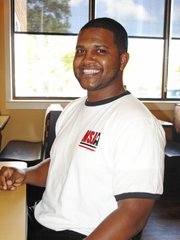

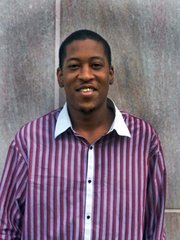

Comments
Use the comment form below to begin a discussion about this content.